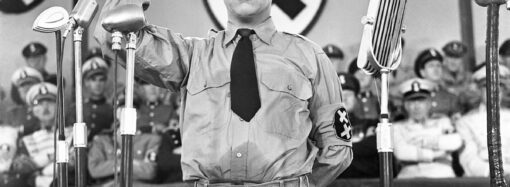 Groups opposed to calling an Article V convention often cite an old letter written by the late Chief Justice Warren Burger opposing such a convention. It is strange that those groups should be quoting Berger, because they also purport to oppose the liberal activism—notably the abortion decision of Roe v. Wade—practiced by the Court when Burger was Chief Justice. (Burger voted with the majority in Roe.) Naturally, those groups never acknowledge that Justice Antonin Scalia, a far more principled and talented justice than Burger, has strongly advocated for an amendments convention.
Groups opposed to calling an Article V convention often cite an old letter written by the late Chief Justice Warren Burger opposing such a convention. It is strange that those groups should be quoting Berger, because they also purport to oppose the liberal activism—notably the abortion decision of Roe v. Wade—practiced by the Court when Burger was Chief Justice. (Burger voted with the majority in Roe.) Naturally, those groups never acknowledge that Justice Antonin Scalia, a far more principled and talented justice than Burger, has strongly advocated for an amendments convention.
In any event, Roe v. Wade does offer a hint as to why Burger would write a letter opposing a convention for proposing amendments.
First, consider that Burger seems to have known very little about Article V. He wrote his letter well before the publication of modern research on the subject. Unlike Justices Rehnquist and Stevens, he appears never to have heard an Article V case. Supreme Court justices sometimes publish articles on issues they have researched, but the legal databases reveal nothing on Article V ever published by Burger. Indeed, his ignorance of the subject appears in the letter itself, which erroneously labels the gathering a “constitutional convention” and repeats the old myth the 1787 convention exceeded its authority.
So, why would he write so firmly about a procedure of which he apparently knew little? Again, Roe v. Wade offers a clue.
In the 1960s (before Burger was Chief Justice) the Supreme Court embarked on a course of extreme liberal activism. The Court’s decisions triggered repeated calls for constitutional amendments to overrule them. For example, Senator Everett Dirksen (R.-Ill.) led a very successful application campaign (33 states signed on) for a convention to partially reverse some of the Court’s edicts on legislative apportionment. In response, liberal defenders of the Court widely popularized the claim—repeated by Burger in his letter—that an Article V convention would be uncontrollable.
Contrary to some expectations, the Court continued to be nearly as activist after Burger became Chief Justice. Roe v. Wade is a premier example. That case, and some others, provoked more calls for constitutional amendments to curb what many believed was very arrogant bench.
Burger’s letter was the last of three featured by convention opponents. The first two were written while he was still serving as Chief Justice. One of them reveals concern with the fact that President Reagan was then advocating a convention to amend the Constitution—a procedure that eventually could lead to reversal of his own court’s ultra-activist decisions, including but not limited to, Roe v. Wade.
In other words, Burger was protecting his court from popular efforts to control it through the amendment procedure of Article V.
This was a natural impulse on Burger’s part. But it is hardly the kind of evidence that should persuade anyone on the merits of holding an Article V convention. Particularly anyone who purports to oppose judicial activism of the kind represented by Roe v. Wade.







